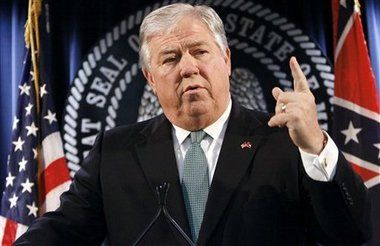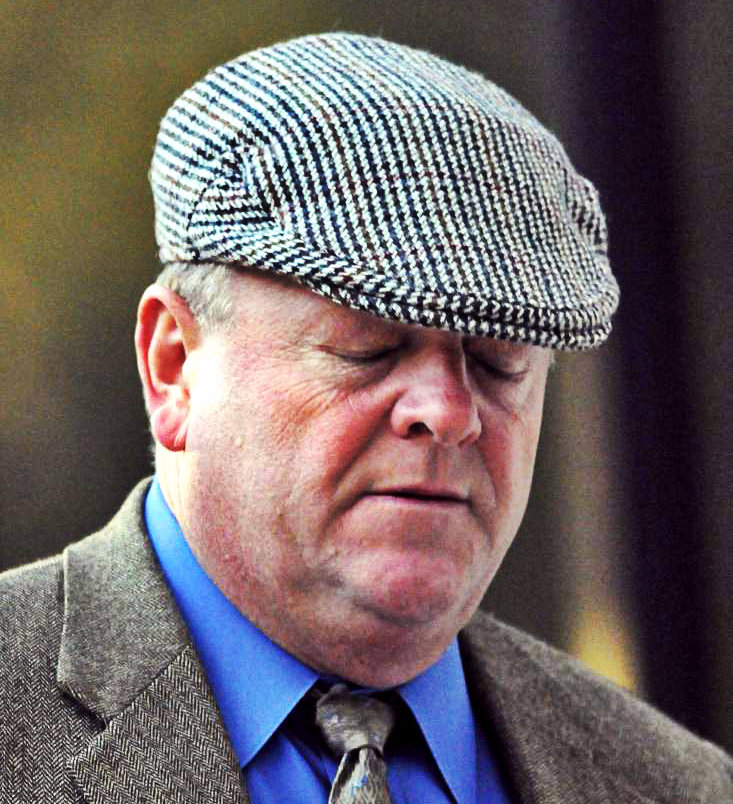

File photo/The Associated Press
JACKSON, Mississippi (AP) — On Hurricane Katrina’s 10th anniversary, is it time to take off the chip?
By now, everyone knows about Mississippi’s post-storm insecurity, its angst about being overshadowed by all the media attention on New Orleans after the storm, when hundreds of Mississippians had also died, and tens of thousands were homeless.
And the chip is still there. Some residents of the Magnolia State shined it up and planted it back on their shoulders last week when President Barack Obama announced that he would visit New Orleans, but not the Mississippi Gulf Coast to commemorate the anniversary.
Maybe the best place to sample the reaction was the “Land Mass” Facebook page. It’s named after another hurricane-related sleight to Mississippi, when a Weather Channel forecaster predicted in August 2012 that Hurricane Isaac would hit “the land mass between New Orleans and Mobile.”
Some waggish Mississippians adopted the phrase as an alternate name for their home. After noting Obama would visit New Orleans this week to commemorate Katrina, the page remarked, “Of course he will, since nothing actually happened in the Land Mass. That was just an urban legend.”
Grabbing for attention was understandable in the wake of the storm, when there was so much devastation that it seemed like no one could ever get enough help. Attention was a currency that might be exchangeable for aid, especially in those first chaotic, panicky weeks of a yearslong rebuilding effort.
“With all the publicity and headlines and all for New Orleans, we could not afford to be forgotten,” former Bay St. Louis Mayor Eddie Favre recently told a crowd at a Katrina commemorative event, explaining his famous vow to wear shorts until his city recovered.
Robin Roberts, the Pass Christian hometown girl beloved in part for her advocacy of the coast after the storm, used that same word last week when she screened her new Katrina retrospective at an invitation-only event.
“I vowed to you, you would not be forgotten,” the Sun Herald quoted the Good Morning America co-anchor as telling the audience.
Former Gov. Haley Barbour, in his new book, “America’s Great Storm,” lists Roberts as one of the reporters who was “generous in making sure we were able to tell our story to a broader national audience,” along with MSNBC’s Joe Scarborough and Mississippi natives Shepard Smith of Fox News and Kathleen Koch, formerly of CNN.
Barbour, though, seems intent on downplaying Mississippi’s post-Katrina media inferiority complex, saying other Americans eventually paid plenty of attention to the state.
“Many Mississippians were angry when their horrendous losses were ignored or, at best, underreported. I reminded them, ‘The news media doesn’t like to cover airplanes that land safely,'” Barbour writes in his introduction. “Nevertheless, as time went on, Americans began to notice the way in which Mississippians met head-on the challenges of recovery. I have come to believe that the response of the people of Mississippi to Katrina’s destruction did more to improve the image of our state than anything that has happened in my lifetime.”
With current state officials including Gov. Phil Bryant hoping to tell a positive story about the state on the storm’s 10th anniversary, that might be a better tone.
“We have borne the burden of painstaking recovery, and the fruit of our labors is remarkable,” Bryant wrote in a 10th anniversary report. “Businesses are reopened. Homes are rebuilt. Roads and bridges connect our Gulf Coast towns once again, and the economy is thriving. We have come so far, and we have come together.”
But ultimately it’s up to Mississippians to decide whether they’re ready to stop feeling slighted.



